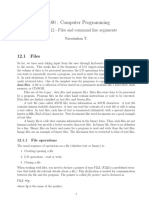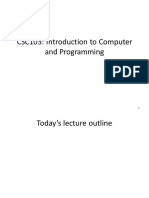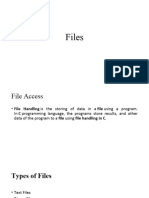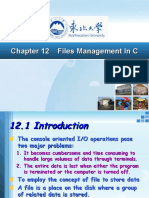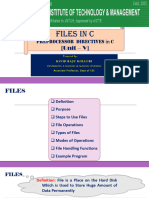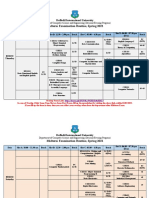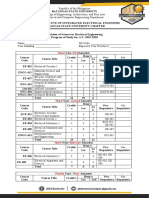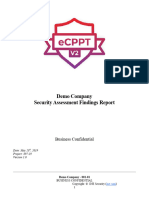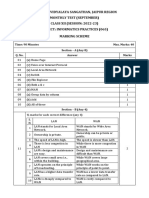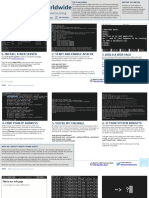0% found this document useful (0 votes)
63 views13 pagesFile Handling: Dr. Mayank Swarnkar
The document discusses file handling in C programming. It covers opening, reading, writing and closing files. Specific functions are mentioned to perform operations like reading/writing characters, integers, strings from/to files. Error handling functions like feof and ferror are also summarized. The document explains random access of files using functions like ftell, fseek and rewind. It provides exercises to read a file and find vowels/consonants count, and replace words in a file.
Uploaded by
Utkarsh PandeyCopyright
© © All Rights Reserved
We take content rights seriously. If you suspect this is your content, claim it here.
Available Formats
Download as PDF, TXT or read online on Scribd
0% found this document useful (0 votes)
63 views13 pagesFile Handling: Dr. Mayank Swarnkar
The document discusses file handling in C programming. It covers opening, reading, writing and closing files. Specific functions are mentioned to perform operations like reading/writing characters, integers, strings from/to files. Error handling functions like feof and ferror are also summarized. The document explains random access of files using functions like ftell, fseek and rewind. It provides exercises to read a file and find vowels/consonants count, and replace words in a file.
Uploaded by
Utkarsh PandeyCopyright
© © All Rights Reserved
We take content rights seriously. If you suspect this is your content, claim it here.
Available Formats
Download as PDF, TXT or read online on Scribd
/ 13









